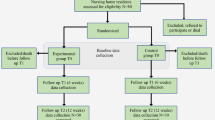Abstract
Background and aims: Music has been used as a non-pharmacological modality in the treatment of different conditions since ancient times. It has received attention in modern medicine in recent decades, particularly in geriatric population. The effects of music on mood and cognition are well documented. The aim of the current case report is to highlight the benefits of musical activities in the geriatric population. Methods: We report a naturalistic treatment outcome in an elderly patient on a geriatric psychiatric unit related to a single session of piano playing. Results: A rapid and sustained improvement in mood and cognition of an elderly patient was observed after a single session of playing piano. Notwithstanding the limitations of a single subject, uncontrolled case study, the effect was dramatic. Conclusion: Our findings support previous claims regarding music therapy including effects of a single session musicbased therapeutic interventions, and we conclude that music therapy for geriatric patients with mood and cognitive deficits is worth further systematic investigation.
Similar content being viewed by others
References
Kiloh LG. Pseudo-dementia. Acta Psychiatr Scand 1961; 37: 336–51.
Arie T. Pseudodementia. BMJ (Clin Res Ed) 1983; 286: 1301–2.
Kiloh LG. Depressive illness masquerading as dementia in the elderly. Med J Aust 1981; 2: 550–3.
McAllister TW. Overview: pseudodementia. Am J Psychiatry 1983; 140: 528–33.
Koelsch S, Siebel WA. Towards a neural basis of music perception. Trends Cogn Sci 2005; 9: 578–84. Epub 2005 Nov 3.
Schellenberg EG. Music and cognitive abilities. Curr Dir Psychol Sci 2005; 14: 317–20.
Koelsch S, Kasper E, Sammler D, Schulze K, Gunter T, Friederici AD. Music, language and meaning: brain signatures of semantic processing. Nat Neurosci 2004; 7: 302–7. Epub 2004 Feb 22.
Silverman MJ. The influence of music on the symptoms of psychosis: a meta-analysis. J Music Ther 2003; 40: 27–40.
Van de Winckel A, Feys H, De Weerdt W, Dom R. Cognitive and behavioural effects of music-based exercises in patients with dementia. Clin Rehabil 2004; 18: 253–60.
Hanser SB, Thompson LW. Effects of a music therapy strategy on depressed older adults. J Gerontol 1994; 49: P265–9.
Chutka DS, Takahashi PY, Hoel RW. Inappropriate medications for elderly patients. Mayo Clin Proc 2004; 79: 122–39.
Gold C, Solli HP, Kruger V, Lie SA. Dose-response relationship in music therapy for people with serious mental disorders: systematic review and meta-analysis. Clin Psychol Rev 2009; 29: 193–207. Epub 2009 Jan 22.
Shultis C. Music therapy for inpatient psychiatric care in the 1990s. Psychiatric Times 1999; 16.
Krout RE. The effects of single-session music therapy interventions on the observed and self-reported levels of pain control, physical comfort, and relaxation of hospice patients. Am J Hosp Palliat Care 2001; 18: 383–90.
Cassileth BR, Vickers AJ, Magill LA. Music therapy for mood disturbance during hospitalization for autologous stem cell transplantation: a randomized controlled trial. Cancer 2003; 98: 2723–9.
Nierenberg AA, Farabaugh AH, Alpert JE et al. Timing of onset of antidepressant response with fluoxetine treatment. Am J Psychiatry 2000; 157: 1423–8.
Pollack B. Clinical findings in the use of Tofranil in depressive and other psychiatric states. 1959. Am J Psychiatry 1994; 151: 273–6.
Virk G, Reeves G, Rosenthal NE, Sher L, Postolache TT. Short exposure to light treatment improves depression scores in patients with seasonal affective disorder: A brief report. Int J Disabil Hum Dev 2009; 8: 283–6.
Nijjar G, Reeves G, Manalai P, Postolache T. Depression scores after one hour of bright light versus dim red light in patients with seasonal affective disorder. In: Crystal JH (Ed) Society of Biological Psychiatry, May 20-22, 2010. New Orleans: SOBP.
Author information
Authors and Affiliations
Corresponding author
Rights and permissions
About this article
Cite this article
Manalai, G., Manalai, P., Dutta, R. et al. Rapid improvement of depressive symptoms and cognition in an elderly patient with a single session of piano playing: a clinical treatment report. Aging Clin Exp Res 24, 278–280 (2012). https://doi.org/10.1007/BF03325258
Received:
Accepted:
Published:
Issue Date:
DOI: https://doi.org/10.1007/BF03325258




